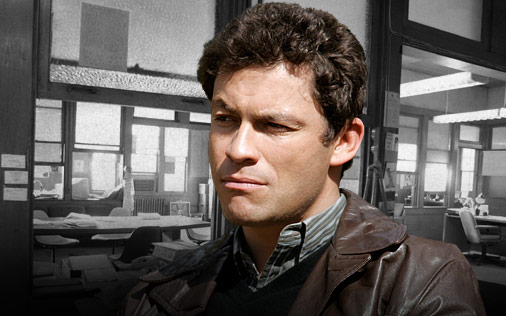 George Mitchell and his legal eagles are bad-ass. I’m glad to see that the ‘purity’ of the National Pastime is nekkid on the table and knickers in a twist. But it ain’t a big secret, I mean being incredulous about juicing in baseball is like Renault in Casablanca being “Shocked, Shocked to find that gambling is going on in here.”
George Mitchell and his legal eagles are bad-ass. I’m glad to see that the ‘purity’ of the National Pastime is nekkid on the table and knickers in a twist. But it ain’t a big secret, I mean being incredulous about juicing in baseball is like Renault in Casablanca being “Shocked, Shocked to find that gambling is going on in here.”
ÂÂ
ÂÂ
Let’s be real: Cheating is part of the American Way. The USA was built violently from the ground up and then expanded west Deadwood style. Jay-Z is on the cover of Fortune Magazine – his beginnings as a businessman are rooted in the ‘illegal’ drug trade – and he is now on the legal side of things. So what message does the magazine cover send to corner boys? Keep your head down and work at McDonalds? Don’t think so.
Tag: Politics
-
Steroids, Sopranos & Hilly the Clint
nM_A4Skusro -
The Wire: Social Structure (the game is rigged)
 Season 4 of The Wire just dropped on DVD, so this weekend I was glued to the telly and composing armchair academic essays about the structure of this B’more world. Then I read media scholar Jason Mittel’s writing about the show, and decided best just to step aside and give him the mic. I’ve quoted at length cause I know yall might not click through. And this should be read:
Season 4 of The Wire just dropped on DVD, so this weekend I was glued to the telly and composing armchair academic essays about the structure of this B’more world. Then I read media scholar Jason Mittel’s writing about the show, and decided best just to step aside and give him the mic. I’ve quoted at length cause I know yall might not click through. And this should be read:[Series creator David] Simon has suggested that The Wire is a show about the relationship between individuals and institutions, a claim that the program seems to uphold. But I would argue that the point of emphasis is much more clearly on institutions rather than individuals, as within each of the social systems that the show exploresâ€â€the police, the drug trade, the shipyard, city government, the educational systemâ€â€the institution is brought into focus through the lens of numerous characters. Certainly McNulty is a central point of access to understand police bureaucracy and functions nominally as the show’s main character, but by season four he is in the margins while characters like Daniels, Colvin, and Bunk provide alternate entry points to explore the police system.

Likewise we experience the drug trade through a range of characters from D’Angelo to Stringer, Omar to Cutty. While all of these characters have depth and complexity, we rarely see much of their existence beyond how they fit into their institutional rolesâ€â€even romantic relationships seem to foreground inter-institutional links between police, lawyers, and politicians more than interpersonal bonds deepening characters’ inner lives and motivations. The chronic alcoholism and infidelity of The Wire’s police officers offers a portrait less of flawed personalities than of a flawed institutionâ€â€the police admire the systematic discipline and coordination of Barksdale’s crew, which is distinctly lacking in the Baltimore Police Department.”I1VoK2VH_I0
(more…)